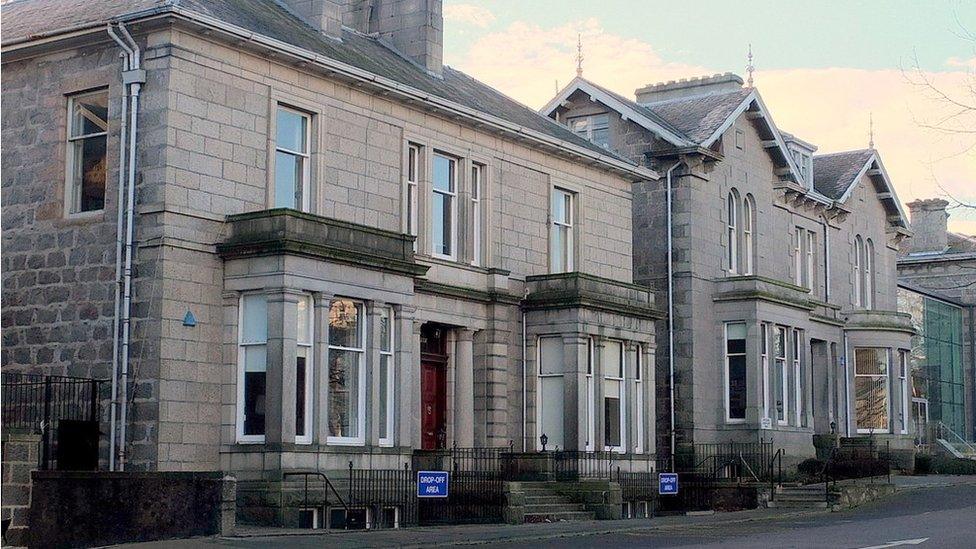Call for public feedback on business rates reforms
- Published

Independent schools like Albyn in Aberdeen could be affected
The Scottish parliament is calling for public feedback on business rates reforms which could see independent schools lose their charitable status.
Ministers plan to "enhance" the rates system by introducing a new bill during the current parliamentary session.
The reforms would include ending the relief which many independent schools have been able to claim as charities.
Some within the sector fear this will directly lead to schools raising fees, offering fewer bursaries or closing.
Non-domestic rates are levied on business properties, determined by the assessed value of the building, and are the second-highest source of tax income for the Scottish government.
The proposals, many of which are based on the recommendations of the Barclay Review, external, include reducing the current five-year valuation cycle to three years and measures aimed at improving the administration of the system.
Ministers also want to tackle known tax avoidance, including tactics involving unoccupied or under-used properties.
'More radical'
The bill, put forward by economy secretary Derek Mackay, also recommends independent schools should no longer be able to claim charitable relief, which would amount to £37m between 2020 and 2025, it suggests.
Under the current system, independent schools with charitable status pay 20% of their rates bill, while local authorities have the discretion to charge them nothing at all.
Holyrood's local government and communities committee will examine the impact of the Bill.
Committee convener James Dornan said: "Non-domestic rates are the second highest revenue-raising tax in Scotland and these reforms could affect a great number of people.
"We are keen to hear the views of potentially affected organisations and members of the public about the proposed changes to the system, and whether the government has addressed the issues raised in the Barclay Review.
"We also want to know if people think anything else should be included in this Bill or if more radical reform of the system is needed.
"We look forward to hearing what the public has to say and using the evidence to ensure our inquiry is as robust as possible."